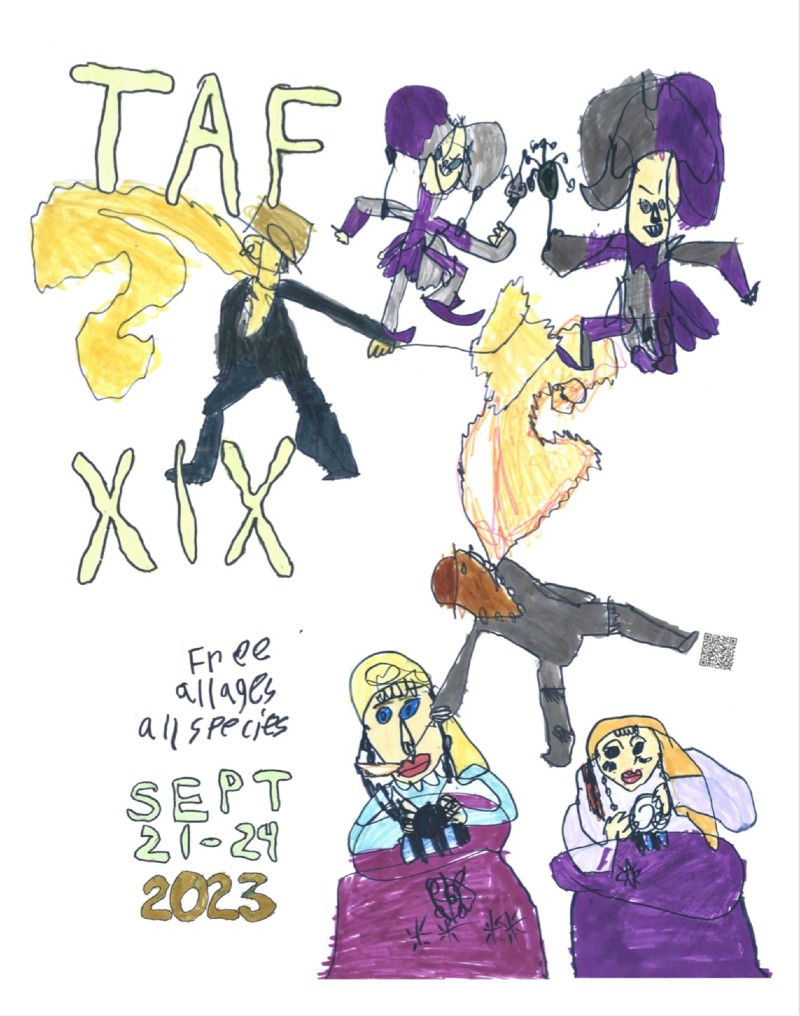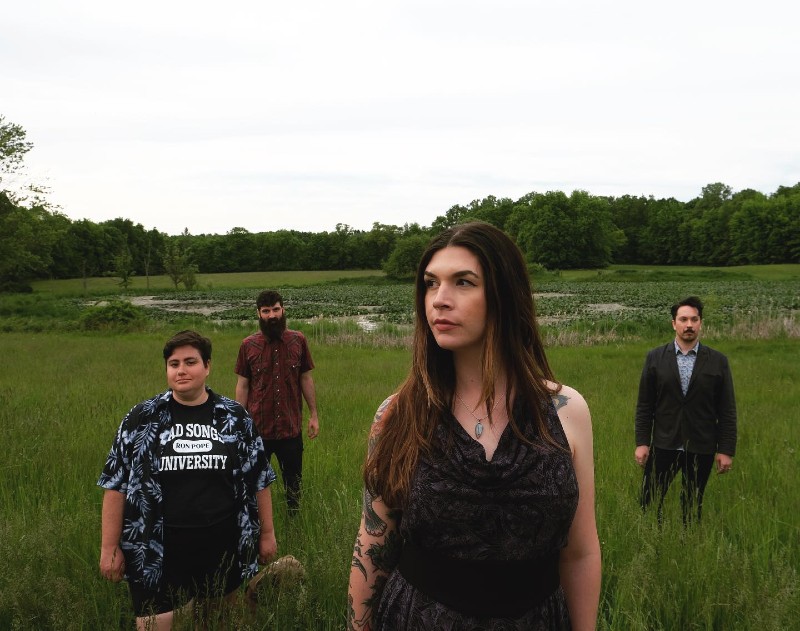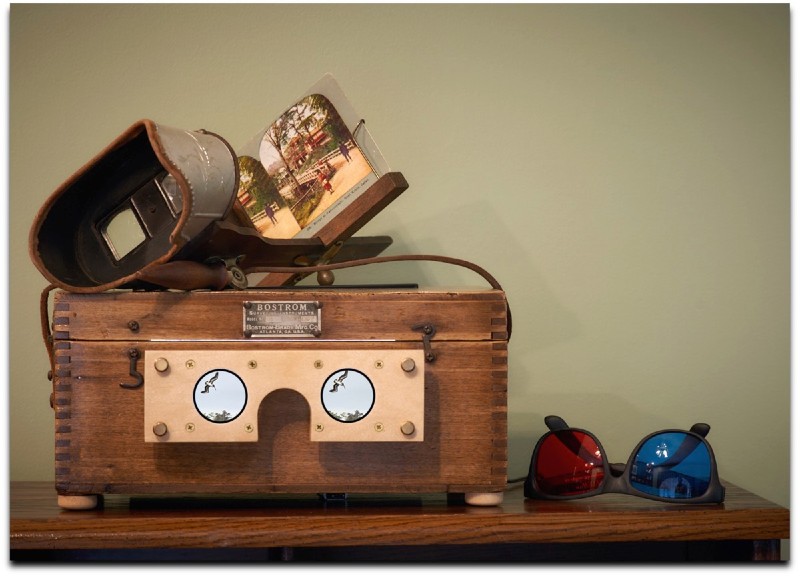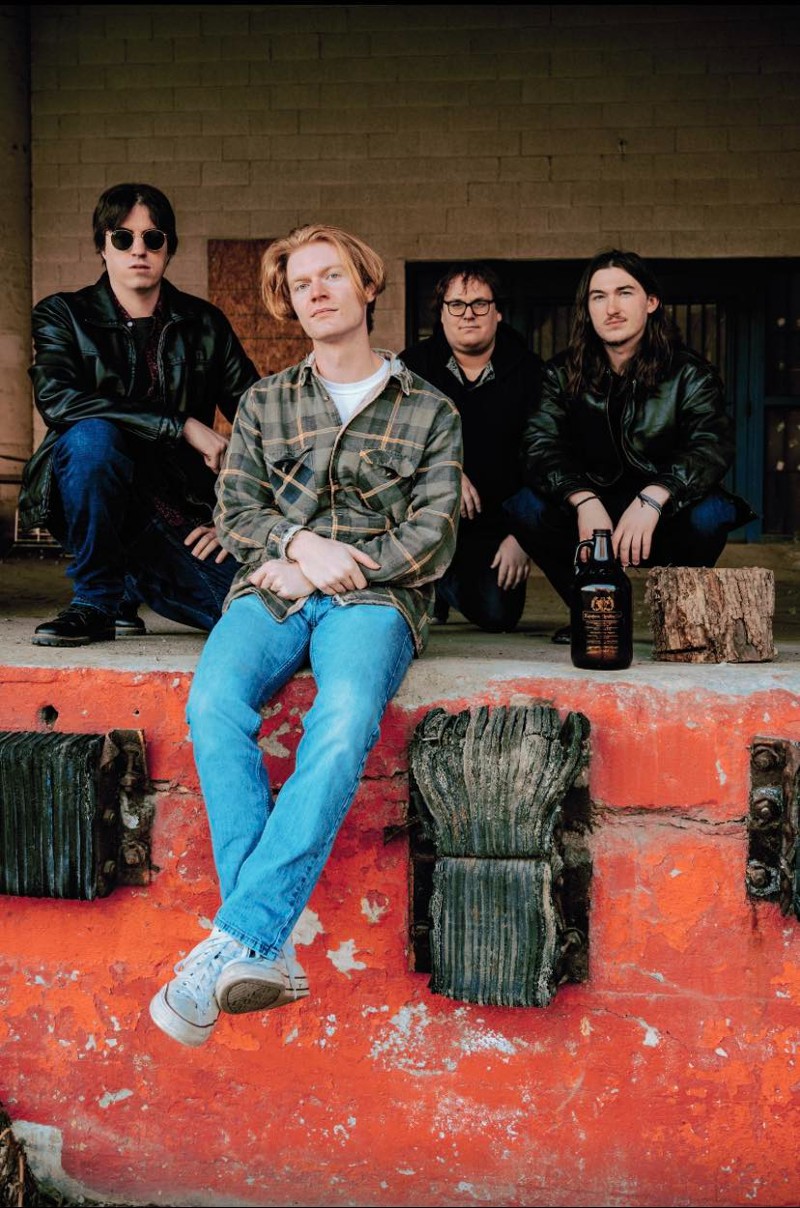Things to Do: Fall Festivals Spotlight Arts, Culture, and Music in Washtenaw County

This fall brings plentiful opportunities to celebrate local arts, music, and culture through several Washtenaw County festivals. Peruse our list of fun things to do with family and friends in September and October.
WCBN Fundraiser
September 9
The Blind Pig, Ann Arbor
The University of Michigan student-run radio station, WCBN-FM 88.3, is hosting a fundraising show at The Blind Pig with two Ann Arbor bands—no-wave duo Lunch and hardcore quartet Tried—along with Lansing alt-indie rockers Harper. You can purchase tickets here.
Things to See: Pulp Art Exhibit Roundup for September

With fall not too far away, we’re anticipating another season full of vibrant colors and landscapes. However, a lot of that color vibrancy can also be found indoors at several art exhibits this month in Washtenaw County. Check out this list of exhibits featured at local galleries in September.
1968: A Folsom Redemption
September 1-October 20
Chelsea District Library, Chelsea
1968: A Folsom Redemption is a collection of photographs and memories of two journalists—photographer Dan Pousch and writer Gene Beley—lucky enough to be among a handful of eyewitnesses to the historic Johnny Cash concerts at Folsom Prison. The exhibit is available to view in the library's McKune Room.
A Colorful Dream
September 1-October 20
Ypsilanti District Library, Ypsilanti
A Colorful Dream is a family-friendly exhibition by fine art photographer Adrien Broom. Designed to evoke and capture a sense of childhood fantasy, Broom’s work is deeply rooted in fairy tales and mythology, taking the viewer on a journey through the entire spectrum of the rainbow. The exhibit is available to view at the Whittaker branch during library hours.
Scale Up: Adam J. Snyder Overcomes Life’s Obstacles on “Down From the Mountain Out to the Sea” EP

No “mountain” is too high for Adam J. Snyder to scale.
The Ypsilanti singer-songwriter and guitarist overcomes life’s obstacles to follow a new path on Down From the Mountain Out to the Sea.
“I’ve been pushing against myself, and I feel like I’ve been in the weeds my whole life. I’m in a pretty good place now, and I’m heading in the right direction of where I want to be,” said Snyder about his latest folk-pop EP.
“I went to Nicaragua in March, and I got to spend some time in the mountains. Then I got to spend time surfing on the beach and hanging out. Something about [that] just felt like where I wanted to be and what I wanted to do, so that’s my goal.”
As part of that goal, Snyder shares that positive outlook on Down From the Mountain Out to the Sea, which features soft, breathy vocals; concise lyrics; bluesy influences; and percussive, rhythmic, and fingerpicked acoustic guitars.
Those elements create a comforting sonic experience and reflect the hope, encouragement, and determination embedded in the EP’s five tracks.
“I’ve just been feeling a little more in touch with that kind of stuff when I’ve been writing,“ said Snyder, who grew up in Dexter and previously fronted the now-disbanded Dirty Deville.
“When I come across an idea or things that feel right … or I’m just doing what I enjoy, which is playing guitar, I feel more connected to that kind of stuff. I feel like things are in alignment.”
Her Story: Joanna Sterling Chronicles a Trans Woman’s Journey on “Queen of Wands” Album

For Joanna Sterling, Queen of Wands represents an emotional journey filled with self-discovery, authenticity, and courage.
The Ann Arbor singer-songwriter reveals her inner thoughts, feelings, and experiences as a trans woman on her sophomore release.
“It’s very autobiographical, and I did have to cultivate a lot of courage to even write some of these. If you had asked me five years ago would I ever open an album with my boy name before I transitioned—like no, absolutely not,” said Sterling about her new folk-pop album.
“I wanted to open with that song ‘Joey’ because it took a lot for me to be like, ‘You know what, I want to accept my full self, not just me as a post-transition woman, but also who was I before and how that person is still very much a part of who I am today, and my journey that I had to take to become the woman that I am.’”
Sterling documents that journey through 13 cathartic tracks—which range from confessional ballads to rallying cries to melancholic tales—on Queen of Wands. She connects with listeners through honest lyrics, nature-filled imagery, and folk-inspired instrumentation.
“I feel like a lot of the themes that are explored on this album aren’t just about being transgender. They’re really about the journey we all have to take in order to accept ourselves,” she said.
“I feel like I was able to strike a balance by being really honest about some of the specific things I’ve been through, but also make them accessible and relatable to others potentially.”
We recently spoke to Sterling about her background, the album’s tarot-inspired title, the stories behind several of the album’s tracks, her collaboration with producer Chris DuPont and other local musicians, her album release show, and plans for new material.
Retired Eastern Michigan University Professor and Ypsilanti Sculptor John Nick Pappas Dies at 88

John Nick Pappas, a retired professor of sculpture and drawing at Eastern Michigan University, died on July 6. He was 88.
Throughout his career, Pappas created sculptures in his Ypsilanti studio for Ann Arbor’s Saint Joseph Mercy Hospital (now Trinity Health Michigan), the University of Michigan’s Medical School campus, Detroit’s Blue Cross Blue Shield of Michigan headquarters, and other hospitals and public places. He also created a program at EMU to have student art installed on campus.
Pappas’ daughter Catherine Pappas revisited her father’s career in the winter of 2015 for Ypsilanti Gleanings:
“He still runs into former students, even though he’s been retired for many years now. I’ve been with him on more than one occasion when this has happened and I can tell you, it is pretty special. It makes me beam with pride when I see and hear about the incredible role he has played in the lives of many of his students. Back in the late 70’s, three of his graduate students; Ed Olson, Paul Mauren, Jeanne Flanagan and my oldest brother Nick worked with him in his studio to help create the Blue Cross piece, which took four years to complete.”
The rest of Catherine’s story, “My Dad, John Nick Pappas, Sculptor” can be read here.
Pappas also did an interview on September 27, 2022 with Creative Washentaw's Deb Polich for "creative:impact" on WEMU-FM 89.1.
Things to See: Pulp Art Exhibit Roundup for August

While we're entering the final stretch of summer, there’s still time to catch several vibrant and innovative art exhibits this month in Washtenaw County. Check out this comprehensive list of exhibits featured at local galleries throughout August.
The (m)Organic Process: Inhale. Exhale. Art.
August 2-13
CultureVerse, Ann Arbor
The (m)Organic Process: Inhale. Exhale. Art. spotlights the creative process and original work of local artist Morgan Burgard. Visitors will experience the process of making art, what it means to Burgard, and what it means to them through a physical exhibit and a virtual experience.
Portraits of Feminism in Japan
Through August 4
Lane Hall Exhibit Space, the University of Michigan’s Institute on Research for Women and Gender, Ann Arbor
The exhibit features original portraits of feminists who have shaped the landscape of women's rights and gender rights in Japan and beyond. Portraits of Feminism in Japan features portraits and accompanying texts from nine contemporary artists in Japan and the U.S. that challenge simplistic understandings of feminism.
The artists also highlight a diversity of experiences, needs, and activism within Japan and cover the history of Japanese studies at the University of Michigan in conjunction with the Center for Japanese Studies’ 75th anniversary.
Featured artists include Elaine Cromie, JenClare B. Gawaran, Takatoshi Hayashi, ivokuma (いぼくま), Nami Kaneko (金子奈美), Kang Jungsook, Lisa Taka Miyagi, Nancy Nishihira (西平・ナンシー), and Shigeki Shibata (柴田滋紀).
Personal Investment: Blind Liars Explore Self-Worth and Authenticity on “The Ringer” Album

For Blind Liars, a debut album provides a vulnerable outlet for understanding one’s self-worth.
The Ypsilanti indie-rock quartet unearths deep emotions from the human psyche—including shame, disappointment, and loneliness—to reveal an authentic sense of self on The Ringer.
“A decent amount of what we have on the album deals with failure and loss and picking yourself up from it,” said Schala Walls, one of Blind Liars’ lead vocalists and multi-instrumentalists. “The very act of writing this music was kind of an investment in my self-worth, so all of the songs kind of reflect that.”
Alongside bandmates Jon Root (lead vocals, songwriting, keys, guitar, bass) and Eric Bates (drums, bass, guitar), Walls channels personal experiences of social alienation due to neurodivergence and queerness across eight cerebral tracks. (Bassist Mari Neckar joined after the album was recorded.)
The Ringer features intimate ballads, howling sing-alongs, and emotional tales steeped in ‘60s prog-rock, shoegaze, and a kitchen sink-full of other influences.
We recently spoke to Blind Liars about the band’s formation, its newest member, the album’s theme and sound, the writing and recording process, upcoming album release shows, and future plans.
My Generation: Social Meteor Shares Everyday Struggles of Gen Z and Millennials on Self-Titled Debut Album

Social Meteor didn’t expect its debut album would speak for a generation—or two.
It started as a creative outlet for documenting each member’s challenges but soon evolved into a collective voice for sharing Gen Z and Millennial struggles.
“All the songs are a reflection of what our lives have been like and the struggles that we go through on a day-to-day basis living in 2023 and the past few years,” said vocalist-keyboardist Jordan Compton about the Ypsilanti indie-rock band’s new self-titled album.
“It’s honest because we didn’t intend to make some grand scheme, and we didn’t know what the theme of this album was gonna be when we picked the songs to go with it. It formed over time and reflects what it’s like to live in modern America as a younger person.”
Those reflections not only come from Compton, but also from his three Social Meteor bandmates: Paul Robison (drums, vocals), Brad Birkle (guitar, vocals), and Patrick Frawley (bass, vocals). Together, they explore relationships, losses, and lessons alongside complex emotions.
“They’re like journal entries, and it’s more of a personal approach. When we are trying to write songs, everyone writes them a little differently,” said Robison, who co-formed the group in 2019 and co-derived the band’s name from a wordplay on the term “social media.”
“The nice part about us is that we can all write songs … and something I’ve taken from them is: ‘Don’t try to pretend and be like somebody else. You can take information in from other people, but don’t fake it; try to make it real.’”
In Summary: Folk-Rocker Jeff Karoub Contemplates Life’s High Points on “Between the Commas” Album

During his time at The Associated Press in Detroit, Jeff Karoub wrote obituaries about Motown legends, baseball coaches, and other people of note.
Those obituaries recounted life accomplishments and caused the Dearborn singer-songwriter to ponder how he’d best summarize his own life.
“At the AP, we called that ‘between the commas’—the high points of someone’s life. You know, the stuff you might be remembered for—good and bad,” said Karoub, who now works as a senior public relations representative at the University of Michigan.
“Imagine that you’re reading your obituary: What would you like it to say? What’s in there? Pack it in; you don’t have a chance afterward. You only have a chance now to start putting in the good stuff.”
Karoub advocates bringing that “good stuff” to light on the title track from his latest folk-rock album, Between the Commas. Serene electric guitar, acoustic guitar, bass, keys, and drums echo that sentiment as he sings, “What I offer is just one small thing / Imagine your obituary / Think of what you’d like to say / Something more than ordinary.”
“It’s not that I’m necessarily demanding that you all come gather around and listen to my wisdom; it was as much wisdom to myself,” Karoub said.
“The ideas were coming to me before my mom died [in late 2021]; she wasn’t the inspiration, but she was a catalyst. That makes it more pressing when you lose one of your parents or someone very close to you.”
Heading East: Grand Rapids Outlaw-Country Band The Bootstrap Boys Perform July 22 at Saline's Acoustic Routes Concert Series

The Bootstrap Boys are driving their outlaw-country anthems eastward to Saline later this month.
The Grand Rapids quartet plans to unpack rowdy tales from their five-album catalog during a July 22 Acoustic Routes show at Stony Lake Brewing Co.
The show serves as The Bootstrap Boys’ debut appearance at the decade-old Saline concert series. It’s also the only Washtenaw County stop on a current summer tour in support of their latest album, Hungry & Sober.
Throughout the album, vocalist-songwriter Jake Stilson (Big Jake Bootstrap), guitarist Nick Alexander (Nicky Bootstrap), bassist Jonny Bruha (Jonny “Bubba” Bootstrap), and drummer Jeff Knol (Jeff Bootstrap), share “cheerily nihilistic road tunes” and “sincere ruminations on family and queer identity” alongside hard-hitting, country-rock instrumentation.
“This album has more honest poetry to accompany the storytelling that’s always a part of my work,” notes Stilson on the band’s website, which credits Willie Nelson, Waylon Jennings, and Bob Wills among the band’s biggest influences. “I edited myself a lot less.”


































